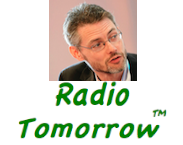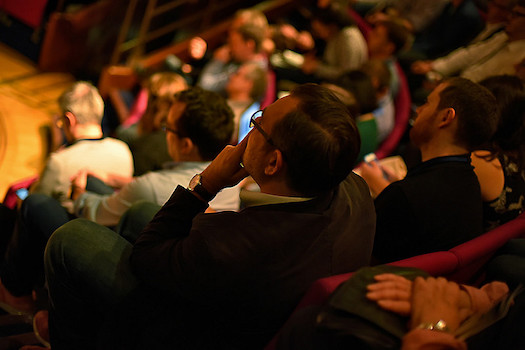Radio Tomorrow with James Cridland
I spend quite a lot of time in radio conferences. It’s fascinating, going round the world and speaking, seeing the differences at every event.
I guess I’ve been to probably a few hundred conferences by now. So, perhaps I might offer a few words of advice to those organising them – with five ways to help make a better radio conference:
5: Get the sharers, not the show-offs
We pitch our stations and our businesses all the time to clients; but a radio conference isn’t the right place to do that. Audiences respect a speaker more if they share, rather than show off. So, if you’re speaking: don’t just tell us that you’re #1 – tell us how you did it. If you have a massively successful podcast, share some of what worked and, if you’re brave enough, what didn’t. We’re here to learn: and if you’re seen as the authority to learn from, that’s valuable for your company and for you.
4: We’re in showbiz, not insurance
We’ve access to some amazing names: but we rarely use them. From music artists to comedians and movie stars, any conference is livened-up with a song, a laugh, or a bit of showbiz. Any radio conference – particularly those with a budget – can find someone brilliant if they try. I’ve seen magicians, authors, motivational speakers, memory masters, dot-com celebrities and some great singers at radio conferences: and they all bring things that people within the industry don’t.
3: Think carefully about panels
Four men in suits (because they’re normally men in suits) sitting next to each other in a chair, agreeing with each other, while another business guy nervously asks questions. Sitting through forty-five minutes of this isn’t much fun – neither fun for the participants or the audience. Panels do have their place, but find a journalist to host the panel (so they can ask difficult questions), ensure you have panelists who disagree with each other, but most of all ask yourself why you’re running a panel in the first place.
2: Produce the day
This is easily the second most important thing. Every conference needs a producer. Give them flexibility to: a) get the slides well in advance, b) go back to a speaker to suggest tweaks to make their bit better, c) plan the day in terms of who sits where, who wears what microphone, etc, and d) stage-manage the entire day as if it’s a show. Because it is a show. The best conferences I’ve spoken at have a producer like this.
1: Fix the sound already
I’m not saying that most in-house AV teams are rubbish at audio, but… well, I guess I am. From howl-back to every single speaker doing their first half sentence in silence before the microphone is faded up, sound is notoriously poor at radio conferences. If only we knew an industry that deals with audio all day long.
After a radio conference which could have been a bit better, I was in a pub with my friend Matt Deegan. During the first pint, we deconstructed what went wrong. By the end of the second pint, we’d rather foolishly decided that we could run a radio conference ourselves. Strangely, after sobering up, we went ahead anyway. We called it Next Radio, and today we’re starting its sixth year.
Next Radio has no panels, every speaker gets either 9 or 18 minutes, and it’s full of ideas for people that make radio. We’re now the UK’s biggest radio conference, which is all the more remarkable since we’re running this as a side project.
This year it’s on September 19th, in central London. I’ll not do the hard sell – that’s not what this column’s for – but there’s over eighty videos to watch from previous years, free, at http://nextrad.io if you want. And, if I’m still under my word count, perhaps I might be able to ask you to buy some ti—
About The Author
 James Cridland is a radio futurologist, and is Managing Director of media.info, a companion website to radioinfo and AsiaRadioToday.
James Cridland is a radio futurologist, and is Managing Director of media.info, a companion website to radioinfo and AsiaRadioToday.
He has served as a judge for a number of industry awards including the Australian ABC Local Radio Awards, the UK Student Radio Awards, and the UK’s Radio Academy Awards, where he has also served on the committee. He was a founder of the hybrid radio technology association RadioDNS.
James is one of the organisers of nextrad.io, the radio ideas conference each September, and is also on the committee of RadioDays Europe. He writes for publications including his own media.info, Radio World International and RAIN News.
James recently moved from North London to Brisbane with his partner and a two year-old radio-loving toddler. He very, very much likes beer.

